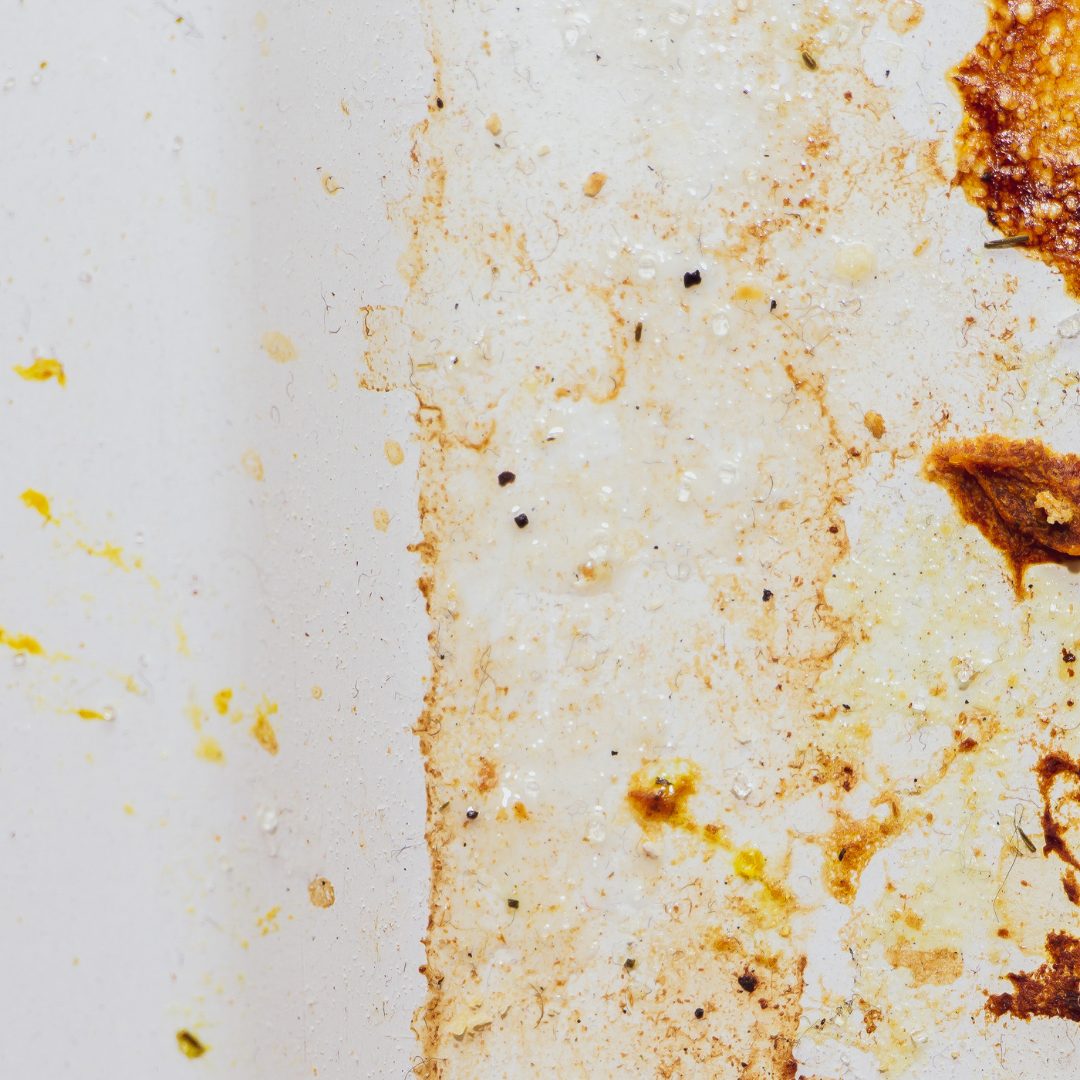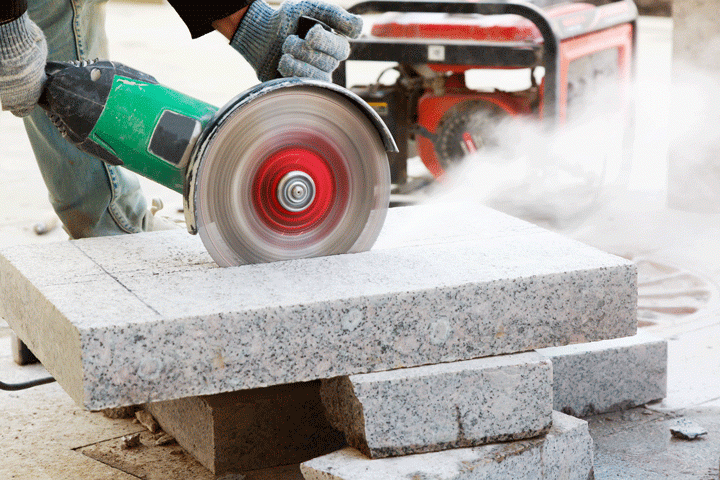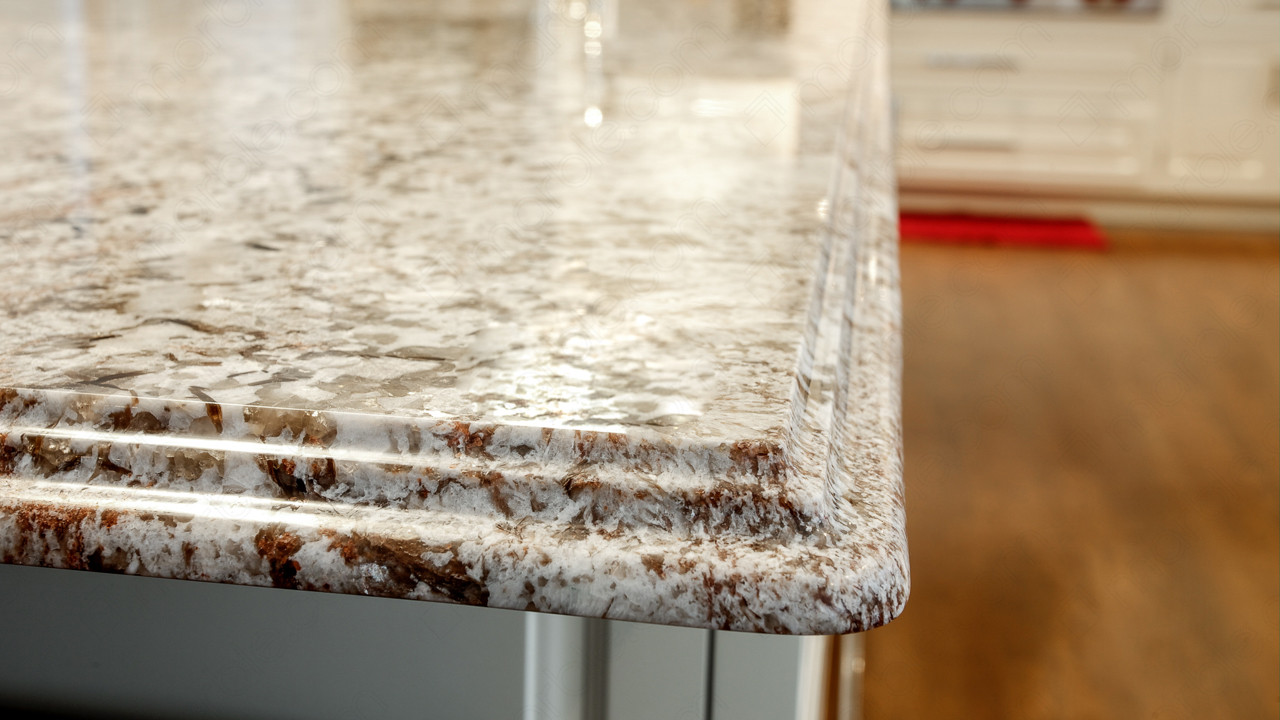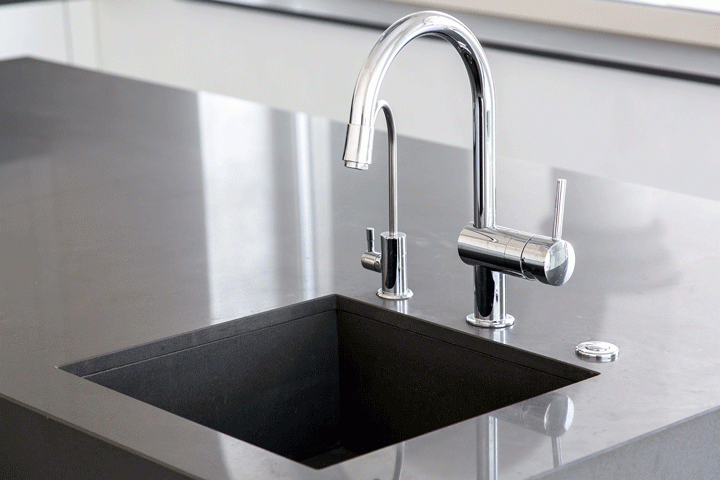Table of Contents

Cooking in the kitchen can be a relaxing and messy endeavor. Between getting the proper measurements, just the right amount of seasonings, and making sure every portion is evenly cooked; it is inevitable that something will spill on your granite countertops.
While granite countertops are resilient to staining, homeowners still need to be proactive in cleaning up spills before they can seep into the stone. Grease stains are especially tricky to remove since they can leave deep blemishes if not removed carefully.
For this article, you will learn how to effectively combat and remove grease stains from granite countertops, as well as helpful tips to keep them shining for a lifetime.
Granite Stone Countertops
Granite countertops are some of the best stone materials you can install as a countertop. Granite is one of the strongest stones used for home renovation and interior design, being easily capable of withstanding any form of damage you or a family can throw at it. For context, granite has a hardness rating of 8 out of 10, making it exceptionally durable for homes. The hardest natural mineral on Earth is diamond, which has a 10 out of 10 on a hardness rating.
Granite Stone Pores
The only real concern about installing granite stone as a countertop is that it contains many pores.
Granite stone is formed when thick magma is slowly cooled and crystallizes as it naturally shifts toward the Earth’s surface. When heat is released, the cooled vents form tiny pores in the stone. These pores can be seen in most types of natural stone.
When installed as kitchen or bathroom countertops, spills like water, juice, grease, or oil can seep into the stone to cause stains and etching.
Grease vs Oil
Grease and oil are common lubricants used throughout the home. The most common situation where grease and oil will affect granite countertops would be in the kitchen where grease is used for cooking.
While grease and oil are typically cleaned in a similar fashion, there are subtle differences between them which homeowners should know.
Cooking grease is typically made from animal fat such as beef, pork, or poultry fat. This grease is a byproduct of cooking meat and poultry. Recent dietary trends have homeowners avoid using cooking grease, it is still widely used and can be reused for future culinary recipes. Cooking grease is typically more solid or semi-solid, needing to be kept at room temperature.
Cooking oil has become more popular with home recipes as it is derived from plants, seeds, and nuts. The most common cooking oils are vegetable, canola, olive, coconut, and sunflower. Despite the large variety of available options, each oil has its own unique flavor and properties which can change how your dish comes out. Cooking oil is a liquid, making it simple to pour into a pan or accidentally spill on your precious granite countertops.
[get_quote]
Cleaning Grease from Granite Countertops
Thankfully, cooking grease being a solid or semi-solid object means it will not seep into granites pores as easily as oil will. However, granite can still trap grease within the stone to form etching and stains if not quickly cleaned.
Method 1: Blot Grease and Oil
The quickest and safest way to keep granite countertops clean from grease and oil stains is to blot up the lubricant before it can dry.
Initial Spill: You are cooking with some cooking grease and a small amount falls on your Aspen White Granite countertops.
Action: Keep an eye on what you are cooking, but quickly grab a paper towel and blot up the grease so it is absorbed. Safely remove the grease absorbed paper towel into the garbage.
Follow-Up: Once you are finished cooking and all burners or heat sources are off, use a soft cloth, warm water, and mild dish soap to clean the area where the grease fell. This will ensure no residual grease particles will seep into the granite.
Method 2: Warm Water and Dish Soap
This method is optimal for general and routine cleaning of granite countertops, as well as cleaning stains and spills when they are still fresh.
Initial Spill: You are cooking something in the kitchen when some pieces of grease fall onto your Orion Granite countertops. You are too busy cooking to take care of it now, so you decide to handle it later. However, you get too busy between cooking, cleaning, work, and other missions that when you remember about the grease, it has already seeped into the stone.
Action: Fill a small bucket of warm water with a few drops of a soft or mild dish soap. Mix the solution together until it is soapy but not excessive. Grab a microfiber cloth or soft rag and dip it into the soapy water solution, wringing out excess liquid into the bucket. Applying a small amount of pressure, scrub the stained area with the wet rag until the stain has been removed.
Follow-Up: Once the stain is completely removed, wet the countertop down with plain warm water to remove any lingering soap bubbles. Use a separate and absorbent washcloth, towel, or rag to completely dry the countertop.
Method 3: Baking Soda Poultice
If grease has seeped deep into the granite stone, then it will require a chemical reaction to help remove it. Baking soda should not be used directly on stone countertops, as it is very abrasive and can cause damage or leave etch marks. However, when combined with water, it creates a poultice, which can be used to remove stains like grease, oil, ink, and paint.
Initial Spill: You are cooking in the kitchen and spill some grease on your Crema Bordeaux Granite countertops. However, you do not notice the grease and it goes unnoticed for several days. By the time you notice it, the grease has formed a noticeable blemish on your granite.
Action: Fill a bucket with warm water and steadily pour in baking soda. Use a spatula to swirl the mixture until it forms a thick but spreadable paste. If it is too mushy or wet, add more baking soda until it reaches the paste-like consistency. Using the spatula, evenly spread the paste over the stain. Cover the stain with plastic wrap and tape it down on each corner to form a tight seal. Allow the paste to sit overnight or 24-hours. The next day, remove the plastic wrap and use a flat, bladed edge to gently scrape away the hardened baking soda. The stain should be removed.
Follow-Up: Scrape away the rest of the baking soda residue and rinse off the entire countertop with plain warm water. Once all the baking soda debris has been removed, use a soft towel or rag to completely dry the granite.
Method 4: Granite Stain Removers
Granite companies typically have safe stain removers and cleaners for homeowners to purchase. These cleaning agents are safe to use on their products only, unless advised otherwise by a customer service representative.
These cleaning agents like the Stonetech Countertop Stain Remover are excellent for granite, marble, limestone, slate, onyx, and gemstone countertops.
Each product will come with its own set of instructions the homeowner should follow to clean their granite stone.

Tips to Keep Granite Clean
Granite countertops do not require a lot of energy or attention to clean. One of their best attributes is that they are exceedingly easy to keep healthy. The best way to keep granite in good condition is to follow these steps in a regular routine.
Cleaning: performing daily or routine cleanings on granite will ensure stains will never form.
Sealing: sealing granite with proper sealants will prevent spills from seeping into the pores and create stains. Sealing should be done every 6 months or 1 year, depending on what your granite company suggests.
Protective Coverings: use trivets, mats, trays, and cutting boards to prevent damage on granite countertops. Spills are simpler to clean and remove from placemats and protective coverings than on granite countertops.
Avoid Harsh Chemicals: avoid using harsh chemicals like bleach, ammonia, or grease cleaners on granite as they can quickly etch or damage the stone. These chemicals contain very powerful cleaning agents which can permanently damage or stain natural stone.
Avoid Abrasive Scrubs: hard scrubs like bristle brushes, knives, or steel wool can etch the stone and wear the sealant. Soft bristle brushes and straight razors can be used, but only with delicate amounts of force applied. Granite is resistant to cutting, but it can still be cut or slashed when enough force is applied.
Conclusion
There you have it! Several methods on how to remove grease from granite countertops, with a few tips on how to keep granite clean in the future. Luckily, granite is very durable and does not need a lot of cleaning to keep it healthy. If the need should ever arise, you now have a guide to keep your granite countertops free from grease and oil stains.
















 The article helped me immensely
The article helped me immensely
 I’m now more informed on the subject
I’m now more informed on the subject
 I have questions about Marble.com
I have questions about Marble.com
 The article was not accurate at all
The article was not accurate at all
 There is a serious lack of information
There is a serious lack of information
 I have questions about Marble.com
I have questions about Marble.com